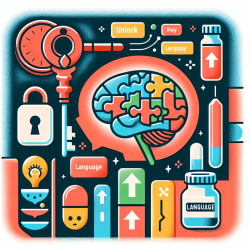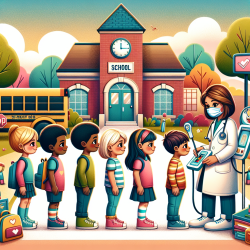The healthcare landscape is continuously evolving, and one of the most promising advancements is the development of mobile health (mHealth) tools. These tools are particularly beneficial for children with long-term illnesses, who often face challenges in communicating their symptoms effectively. A recent study titled The Development of an mHealth Tool for Children With Long-term Illness to Enable Person-Centered Communication: User-Centered Design Approach, explores the creation of an innovative app called PicPecc. This app aims to facilitate better communication and symptom management for children dealing with chronic conditions like cancer and congenital heart defects.
The Need for Improved Symptom Reporting
Children with long-term illnesses frequently experience a range of symptoms that can significantly impact their quality of life. Unfortunately, these symptoms are often underreported due to communication barriers. The study highlights the importance of developing tools that enable children to express their symptoms beyond just pain, including anxiety, fatigue, fear, and nausea. By addressing these needs, healthcare providers can offer more comprehensive care that aligns with the child's experiences.
User-Centered Design: A Collaborative Approach
The development of the PicPecc app was guided by a user-centered design approach, which involved extensive collaboration with children, parents, healthcare professionals, and researchers. This iterative process ensured that the tool met the diverse needs of its users. The app incorporates universal design principles to enhance accessibility, making it suitable for children of varying ages and abilities.
Key Features of the PicPecc App
- Symptom Assessment: The app uses a faces thermometer scale to help children report their symptoms visually. This method is particularly effective for young users who may struggle with verbal communication.
- Communication Support: By facilitating direct communication between children and healthcare providers, PicPecc empowers young patients to take an active role in their care.
- Personalization: The app allows for customization through avatars and gamification elements like collecting virtual pets, which motivate children to engage with the tool regularly.
- Journey Mapping: Features like schedules and calendars help children track their treatment progress and manage appointments effectively.
The Impact on Pediatric Care
The PicPecc app represents a significant step forward in pediatric care by promoting person-centered communication. It not only helps children articulate their symptoms but also fosters a sense of autonomy and control over their health journey. By bridging the communication gap between young patients and healthcare providers, this tool has the potential to improve treatment outcomes and enhance overall well-being.
As practitioners in the field of pediatric care, it is crucial to stay informed about such innovations and consider integrating them into practice. Further research and usability testing in clinical settings will provide valuable insights into optimizing these tools for broader application.
To read the original research paper, please follow this link: The Development of an mHealth Tool for Children With Long-term Illness to Enable Person-Centered Communication: User-Centered Design Approach.










